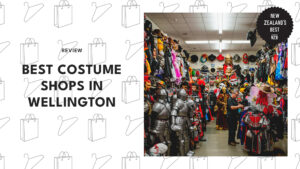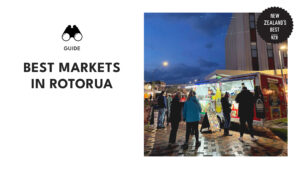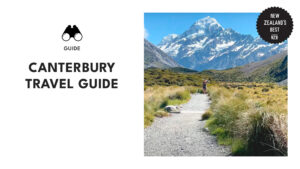How to Obtain a Liquor License for a Business in New Zealand
- STEP 1: Determine your eligibility.
- Other supporting requirements
- STEP 2: Choose the type of license you need.
- STEP 3: Complete the application form.
- How to download the specific form for a liquor license in Wellington, New Zealand:
- How to download the specific form for a liquor license in Auckland, New Zealand:
- STEP 4: Complete the required documents.
- STEP 5: Submit the application.
- STEP 6: Determine the premises' cost/risk rating.
- How premises' cost/risk ratings are determined
- Identifying the base application fee amount
- STEP 7: Calculate the application fee.
- STEP 8: Post notices about the liquor license application.
- STEP 9: Go through application assessment.
- Stages of the Assessment Process
- Acknowledgment
- Public Notice Period
- Licensing Inspector Assessment
- Objections
- STEP 10: Receive the decision.

First things first: obtaining a liquor license in New Zealand is a legal process, and there are serious consequences for breaching the conditions of your license.
It’s important to make sure you understand your responsibilities as a license holder and comply with all legal requirements.
Now, if you’re still set on getting the license, we’ll help. Below is a step-by-step guide on how to obtain a liquor license for your business in New Zealand:
| Difficulty | Very difficult ●●●●● |
| Number of steps | 10 steps |
| Time to perform | Several weeks to several months |
| Things you need | • Laptop • Pen and paper • Relevant documents • A working mode of payment |
STEP 1: Determine your eligibility.
Before applying for a liquor license, you’ll need to make sure you and your business meet the eligibility requirements set out in the Sale and Supply of Alcohol Act 2012.
Here are some of the key eligibility requirements set out in the Sale and Supply of Alcohol Act 2012 for obtaining a liquor license in New Zealand:
| Suitable premises | The premises where alcohol will be sold must be suitable for the purpose including having appropriate zoning and building consents and complying with relevant health and safety regulations. |
| Good character | This means having no relevant criminal convictions or other issues that would call into question the applicant’s fitness to hold a liquor license. |
| Compliance history | The applicant and any associated persons must have a satisfactory compliance history, which means having complied with all laws and regulations related to the sale and supply of alcohol. |
| Community impact | The granting of a liquor license must not have an inappropriate impact on the local community, such as by contributing to increased crime or disorder. |
| Sale and supply of alcohol | The applicant must intend to sell and supply alcohol in a responsible manner, which includes not serving alcohol to minors, not serving intoxicated people, and complying with any relevant laws and regulations related to the sale and supply of alcohol. |
These are just some of the eligibility requirements for obtaining a liquor license in New Zealand. There may be other requirements depending on the specific circumstances of your application.
Other supporting requirements
Under the Sale and Supply of Alcohol Act 2012 (the Act), the Alcohol Regulatory and Licensing Authority must maintain a register of managers’ certificates and licenses granted under the Act.
• Manager’s certificates register – there must be a person who holds a manager’s certificate on duty at all times (except where section 215 of the Act applies). This register contains a list of every person in New Zealand who holds an active manager’s certificate.
• Special license – This is for certain events or occasions. If you plan to sell or supply alcohol at a special event, such as a concert or sporting event, you may need to apply for a special license in addition to your regular liquor license.
STEP 2: Choose the type of license you need.
In New Zealand, there are four main types of liquor licenses that businesses can apply for, each with its own specific requirements and conditions.
The four types of liquor licenses in New Zealand are:
| Type of license | Definition | Example of businesses |
| On-license | Allows businesses to sell and supply alcohol for consumption on licensed premises. | – restaurants – hotels – bars – nightclubs |
| Off-license | Allows businesses to sell and supply alcohol for consumption off the licensed premises. | – Bottle shop – Supermarket – Grocery store – Remote sales (selling through a website) |
| Club license | Allows certain types of clubs to sell and supply alcohol to their members and guests on their club premises. | – Sports clubs – Social clubs- Private clubs |
| Special license | Required for businesses or organizations that wish to sell or supply alcohol at a special event or occasion. This is temporary and only applies to the specific event for which it is granted. | – concerts – weddings – festivals |
STEP 3: Complete the application form.
You can get application forms from your local council or download them from their website.
To illustrate how it should work, below are the steps from two councils’ websites on how to download application forms for a liquor license in New Zealand. The process should be fairly similar for other councils, so just go to the website for the one where you are.
1. How to download the specific form for a liquor license in Wellington, New Zealand:
1. Visit the Wellington City Council website at https://wellington.govt.nz/certificates-and-licences/alcohol-licences
2. Read through the information on the page, which includes details about the types of liquor licenses available and the application process.
3. Select the type of liquor license that you need, such as an on-license, off-license, club license, or special license.
4. Download and complete the relevant application form for your license type.
2. How to download the specific form for a liquor license in Auckland, New Zealand:
1. Visit the Auckland Council website: Go to the Auckland Council website at https://www.aucklandcouncil.govt.nz/ and search for “liquor license” in the search bar.
2. Choose the type of liquor license: From the search results, click on the “Alcohol licensing” page, and then choose the type of liquor license that you want to apply for, such as an on-license or an off-license.
3. Download the application form: On the page for your chosen license type, you should see a link to download the application form. Click on this link to download the form in PDF format.
4. Complete the application form: Print out the application form and fill it in, providing accurate and complete information about yourself, your business, and your proposed or existing premises.
STEP 4: Complete the required documents.
The specific documents required to apply for a liquor license in New Zealand can vary depending on the type of license and the local council or licensing authority.
However, some common documents that may be required include:
- Completed application form
- Site plan or map of the licensed premises
- Floor plan of the licensed premises
- Evidence of your right to occupy the premises (such as a lease agreement or title)
- Evidence of your business’s legal structure (such as a certificate of incorporation)
- Evidence of your business’s financial viability (such as a bank statement or financial projections)
- A copy of your host responsibility policy
- Details of any previous convictions or disciplinary actions related to the sale or supply of alcohol
- Proof of your manager’s certification (if required)
- Payment of the application fee
Make sure to check the specific requirements for your license type and provide all the required documentation.
STEP 5: Submit the application.
Once you have completed the application form and attached all required documentation, you can submit your application to your appropriate local council or licensing authority.
You can submit this in person, by mail, email, or online through the council’s Alcohol Licensing Portal. For example, for the Auckland, Wellington, and Dunedin councils, these would be the relevant addresses:
| Local Council | Over-the-counter | Email address | By post |
| Auckland Council | Bledisloe HouseGround floor 24 Wellesley Street West | – | Auckland CouncilPrivate Bag 92300 Victoria Street West Auckland 1142 |
| Wellington City Council | 12 Manners Street, Te Aro, Wellington 6011 | [email protected] | Alcohol Licensing PO Box 2199 Wellington 6140 |
| Dunedin City Council | The Customer Service Centre, 50 The Octagon, Dunedin | [email protected]. | Alcohol Licensing, Dunedin City Council, PO Box 5045, Dunedin, 9054 |
All the important details you need, such as their contact number and correct email and mail addresses, are provided on every local council’s website.
If you have any questions about completing the application form or need assistance with the process, you can contact ARLA or seek guidance from a licensing consultant or legal professional.
Remember that the information you put in the application becomes public information. You will also need to pay an application fee when you submit your application form.
The application fee you will be charged is based on a number of factors, including these:
- Type of license being applied for
- The size and location of the premises
- Number of endorsements required
| Tip: Make sure to submit your application several weeks or months in advance of your proposed start date to allow time for processing. The length of your application process may vary depending on various factors, such as these: • the type of license • the specific requirements of your application • the efficiency of the council or licensing authority |
STEP 6: Determine the premises’ cost/risk rating.
The premises cost/risk rating is determined by the New Zealand Police, who assess and score each application based on factors such as these:
- the location of the premises
- the type of license being applied for
- the hours of operation, the layout, and the design of the premises
- any previous history of non-compliance with liquor licensing laws
The scoring of the weighting is based on a formula that takes various factors into account to determine the overall risk and cost associated with the premises.
The higher the score, the higher the risk and cost, which may result in a higher application fee.
Here’s an example explanation from the justice.gov.nz website:
1. How premises’ cost/risk ratings are determined
For example, a bottle store (scores 15) closing at 11:00 PM (scores 3) with two enforcements in the last 18 months (scores 20) would have an overall cost/risk rating of 38.
| License type | Type of premises | Weighting |
| On-license | Class 1 restaurant, nightclub, tavern, adult premises | 15 |
| Class 2 restaurant, hotel, and function center | 10 | |
| Class 3 restaurant, other | 5 | |
| BYO restaurants, theaters, cinemas, winery cellar doors | 2 | |
| Off-license | Supermarket, grocery store, bottle store | 15 |
| Hotel, tavern | 10 | |
| Class 1, 2, or 3 club, remote sale premises, other | 5 | |
| Winery cellar doors | 2 | |
| Club license | Class 1 Club | 10 |
| Class 2 Club | 5 | |
| Class 3 Club | 2 | |
| + | ||
| License type | Latest trading hour allowed by license | Weighting |
| On-license | 2:00 AM or earlier | 0 |
| Between 2:01 AM and 3:00 AM | 3 | |
| Anytime after 3:00 AM | 5 | |
| Off-license (Except remote sales premises) | 10:00 PM or earlier | 15 |
| Anytime after 10:00 PM | 10 | |
| Remote sales premises | Not applicable | 0 |
| + | ||
| License type | Number of enforcement holdings in the last 18 months | Weighting |
| All license types | None | 0 |
| 1 | 10 | |
| 2 or more | 20 |
| Total rating/score | Fee category |
| 0-2 | Very low |
| 3-5 | Low |
| 6-15 | Medium |
| 16-25 | High |
| 26 plus | Very high |
2. Identifying the base application fee amount
Licensees can already pay the amounts specified in this table, depending on their fee category. Note that all fee amounts are exclusive of GST.
| Cost/Risk Fee Category | Application fee in NZD | Annual fee |
| Very low | $320 | $140 |
| Low | $530 | $340 |
| Medium | $710 | $550 |
| High | $890 | $900 |
| Very high | $1,050 | $1,250 |
This applies to applications for new licenses, renewals of licenses, and variations to licenses (including a redefinition of licensed premises).
STEP 7: Calculate the application fee.
Actually, you don’t have to worry about manually calculating your application fee on certain council websites because they already provide an “application fee calculator.”
| As an example, here are the steps on how you can calculate your “alcohol on-license” in Auckland Council. • Go to https://www.aucklandcouncil.govt.nz/Pages/default.aspx • Log into your account. • Search for “Alcohol licenses and fines.” • Select “Open a business that sells alcohol.” • Select what kind of license you’re applying for. • Then select Calculate the fee for your alcohol license, where you’ll need to: – Select the type of alcohol business you have (as defined above). – How late are you planning to trade or sell? – Determine if your license has been suspended or withheld in the last 18 months. After calculating, you’ll see the estimated total fee, annual fee, and risk rating. Then it’s time to choose your payment option. |
It’s important to check with your relevant council or licensing authority to determine the application fee for that type of license in your area.
You might also want to visit relevant websites such as the justice.gov.nz and The Sale and Supply of Alcohol (Fees) Regulations 2013 for additional information about the application fees.
Below is the estimated cost of the four types of liquor licenses in New Zealand:
| Type of License | Estimated Application Fee in NZD |
| On-license | $368 to $1,485 |
| Off-license | $184 to $1,485 |
| Club license | $184 to $1,485 |
| Special license | $63 to $793 |
STEP 8: Post notices about the liquor license application.
If you’re applying for an on-license or club license in New Zealand, you are required to advertise your application in a local newspaper or on a news website.
You may also be required to display a notice on the premises where the license will be held. This is known as a “public notice,” and it must include details about your license application:
- Type of license being applied for
- Name and address of the premises and applicant
- Date by which objections to the application must be received
The purpose of these notices is to inform the public about the proposed liquor license and give them an opportunity to object to the application if they have concerns.
| As an example, here’s the process for placing public notices in Auckland Council. After you lodge your application, you’ll need to notify the public: Post near your business’s premises. • Place an A3 notice on your premises that can be read from outside the premises. • The notice must stay in place for 10 days from the date your online notice is published. • See a template for the A3 notice (PDF 100KB) (for Auckland only). Publish your notices on a website and in local newspapers. • For Auckland, you can publish your notices at alcoholnotices.co.nz. This website will manage all your public notice requirements, including the online notice and the two local newspaper public notices in your area (in the case of low risk and very low risk renewals, only one notice is needed). So, go to alcoholnotices.co.nz. • Click the “Alcohol Notices” on the dashboard. • Select “Submit an alcohol notice.” • If you’re still confused, you can click on “How to submit a notice.” The Alcohol Notices website will arrange the correct publication for the newspaper notices. |
STEP 9: Go through application assessment.
Your application will be assessed and considered according to the Sale and Supply of Alcohol Act 2012, which states that:
- The sale, supply, and consumption of alcohol should be undertaken safely and responsibly.
- The harm caused by excessive or inappropriate consumption of alcohol should be minimized.
The District Licensing Committee (DLC) will determine whether:
- You are a suitable person to hold a license.
- Your premises meet licensing requirements.
- You will sell and supply alcohol in a responsible way.
Stages of the Assessment Process
1. Acknowledgment
You’ll receive an acknowledgment email from the secretary of the DLC within 5 working days of submitting your application.
This will tell you if your application has been accepted or rejected and request any further documentation that may be required.
If all your documentation is correct, you may not be contacted again unless a reporting agency wants to visit your business or your application is sent to the District Licensing Committee for a decision.
2. Public Notice Period
If members of the public object to your license application, they can make a submission to the Council during this time.
As well as an alcohol licensing inspector, your application will be considered by:
- an alcohol harm prevention officer from the NZ Police
- a medical officer of health from Capital & Coast DHB.
These agencies might contact you to discuss your application or request further information. They can submit reports, comments, or objections to the DLC within the 15 working day period.
3. Licensing Inspector Assessment
After the public notice period has ended, an alcohol licensing inspector:
- considers the application and all the reports
- may visit your site to talk about how you manage your business.
- submits a report to the DLC for a decision.
| Tip: This process takes at least 35 working days. |
Objections
Members of the public have the right to see your application if they think they might object to it.
For example, they might object because they think selling alcohol from your premises will increase noise, nuisance, and vandalism.
People who can object to your application include:
• they live or work near the location you will sell alcohol from; or
• they belong to the board of trustees of a nearby school or marae.
If anyone makes an objection to your application, you will receive a copy of the objection. This will likely take several weeks longer to process if there’s an objection.
STEP 10: Receive the decision.
Lastly, after several weeks of patiently waiting on your application process, it’s time to know the council’s decision.
- If your application is successful – If you are granted a liquor license, you will have to meet the conditions of the license. These will include when you can sell alcohol and who you can sell alcohol to.
Remember to renew your license every year!
- Appealing the District Licensing Agency’s decision – If your application was unsuccessful, you can appeal the decision. The Alcohol Regulatory and Licensing Authority hears alcohol licensing decision appeals.



